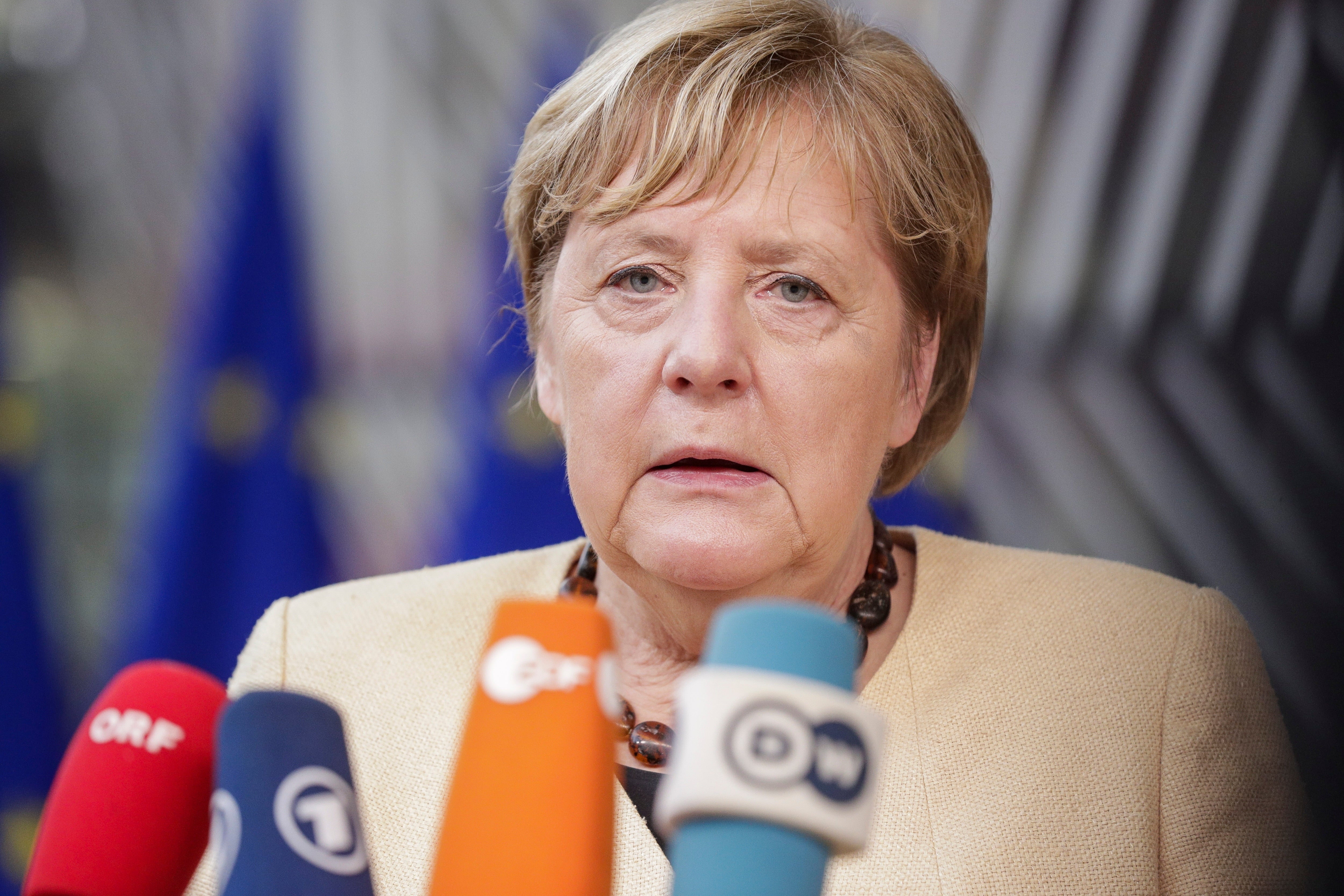EU leaders seek to safeguard energy supplies as prices soar
European Union leaders are meeting to discuss ways to ease the pain of soaring energy bills for consumers

European Union leaders met Thursday to discuss ways to ease the pain of soaring energy bills for consumers, while seeking to safeguard energy supplies to the 27-nation bloc by speeding up the transition away from polluting fossil fuels to sustainable alternatives.
The energy debate at the EU leaders’ summit comes amid spiraling prices that are pummeling households and businesses still reeling from the impact of the COVID-19 pandemic.
The talks also come just 10 days ahead of the opening of a U.N. climate summit that is widely seen as the last chance to limit global warming to 1.5 degrees Celsius above pre-industrial levels.
European Commission President Ursula von der Leyen said the EU's executive and its member states already are working to ease the burden of soaring energy bills on households and businesses.
She said leaders also will have to look at the way energy markets function but stressed that “in the mid and long term, it is very clear that the strategy has to be to invest massively in clean and renewable energy” produced in Europe.
The debate on spiraling energy prices also takes place against a backdrop of frosty relations with Russia, a key supplier of gas to Europe.
Von der Leyen said Wednesday that with the bloc importing 90% of its gas — much of it from strategic rival Russia — “this makes us vulnerable.” Gas makes up one quarter of all European energy consumption.
EU foreign policy chief Josep Borrell called the energy price explosion this year the consequence "of a big geopolitical game.”
Von der Leyen has said that while Norway had raised its gas exports to the bloc to meet increased demand, Russia's Gazprom had not gone beyond honoring its long-term contracts with the EU.
Gas prices have soared this year to 95 euros from about 19 euros per megawatt hour, affecting everything from household heating bills to farmers and food producers. The EU's executive commission says that lower-income households are hardest hit because they spend a higher proportion of their income on energy. Many countries have already offered energy tax cuts to ease the pain.
While all leaders want to minimize the impact of soaring energy prices on their populations, they differ on how to do it.
Entering Thursday’s summit, German Chancellor Angela Merkel said that the issue of soaring energy prices should be differentiated from the long-term fight against climate change.
“I think that we should react calmly; we in Germany will do so in any case,” she said.
Belgian Prime Minister Alexander De Croo said his country is among those that are helping households and businesses foot rising power bills. But he added that long-term solutions must also be found.
“And in the long term, there is only one solution — invest more in renewable energy so we are less vulnerable to price fluctuations for fossil fuels,” he said.
Hungarian Prime Minister Viktor Orban has blamed the hike specifically on the Commission’s Green Deal plans that includes cutting greenhouse gas emissions by 55% by 2030 and making the bloc carbon neutral by 2050.
The current crisis has reignited a debate on whether the EU should promote nuclear power projects as a way of becoming more energy independent. That could be done by making them eligible for billions of euros as part of the European Green Deal and coronavirus recovery fund.
Two years ago, leaders agreed that nuclear energy could be part of the EU’s efforts to become carbon-neutral. However, they have yet to decide whether nuclear projects can be included in the so-called taxonomy, a classification system attempting to define what activities can qualify for sustainable investment.
France recently asked for the inclusion of nuclear power in the taxonomy framework by the end of the year, leading the charge with nine other EU countries — Bulgaria, Croatia, Czech Republic, Finland, Hungary, Poland, Romania, Slovakia and Slovenia.
___
Corder reported from The Hague, Netherlands.
___
Follow all AP stories on climate change issues at https://apnews.com/hub/climate-change.
Subscribe to Independent Premium to bookmark this article
Want to bookmark your favourite articles and stories to read or reference later? Start your Independent Premium subscription today.
